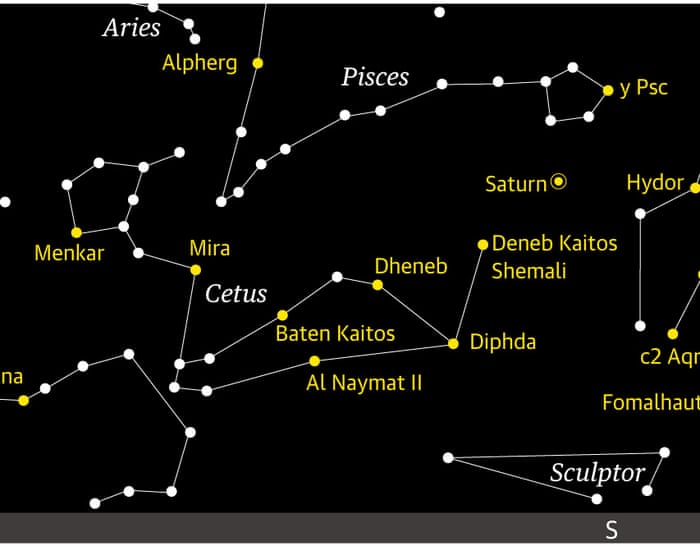Starwatch: track Cetus, the sea monster, sprawling across the night sky
NeutralScience

- This week, the constellation Cetus, known as the whale or sea monster, can be observed in the night sky, particularly from London on November 17 at 20:00 GMT. Spanning about 1,230 square degrees, it is the fourth largest constellation, despite being faint and lacking bright stars.
- The visibility of Cetus from both the northern and southern hemispheres highlights its significance in astronomy, as it allows a wider audience to engage with celestial observations. This accessibility can inspire interest in stargazing and the study of constellations.
- While there are no directly related articles, the focus on Cetus reflects a broader trend in astronomy that emphasizes the importance of lesser
— via World Pulse Now AI Editorial System